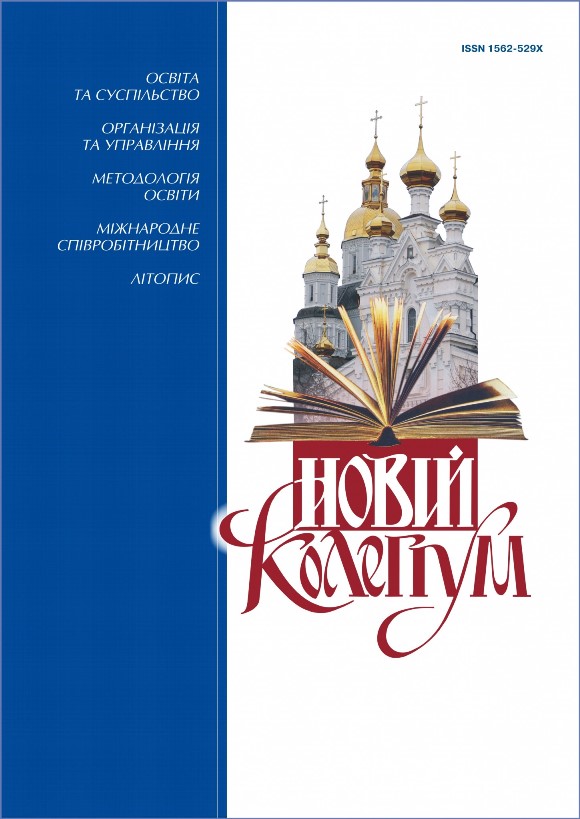Clustering of education as means of improving the effectiveness of working with gifted students
DOI:
https://doi.org/10.30837/nc.2020.2.14Keywords:
clustering, educational cluster, giftedness, gifted pupils, human capitalAbstract
University-School clusters: Best practices and the prospects for their adaptation to Ukrainian context : the XVIII International Scientific and Practical Conference (14-th Febuary 2020, Kharkiv Univ. of Humanities “People’s Ukrainian Acad”.
Clustering of education is one of the answers to the challenges of today.
The concept of "clustering" was first introduced in the 1950s mainly in the industrial sector, and in the late twentieth century it became widespread in the social sphere.
Clusters are now becoming a key component of national and regional economic development plans.
Kharkiv region is the center of implementation of educational clusters in the active role of higher education institutions, which constantly seek to improve the quality of training of competitive specialists. Work experience in the educational cluster has been accumulated at the Kharkiv Physics and Mathematics Lyceum # 27, the main purpose of which is the education and development of gifted and capable pupils.
The institution has a system of work with pupils, which involves teachers of higher educational institutions, students. The extra classes’ activities for students are held at the Center for Pre-University Education of Kharkiv National University.
In our view, the significant potential in overcoming and minimizing the negative factors that influence the self-realization of gifted students and do not facilitate their "participation" in the development of human capital is in the creation of educational clusters. They envisage the cooperation of various persons who interact with gifted students.
References
Соколова К. С. Использование кластерного подхода в целях повышения конкурентоспособности системы образования: сравнительный анализ международного опыта // Современные исследования социальных проблем. 2010. № 4. С. 531–541.
Фролов А.В. Зарубежный опыт формирования кластеров. Актуальные вопросы современной науки : сб. науч. ст. ; под ред. О.В. Буреш. Оренбург : ИПК «Университет», 2011. Вып. I. С. 166–173.
Смирнов А. В. Теоретические подходы к образовательным кластерам в системе профессионального образования // Психология, социология и педагогика. 2012. № 12.URL: http://psychology.snauka.ru/2012/12/1456.
Деменчук П. Ю. Образовательный кластер как институциональная система интеграции образования // Интеграция образования. 2013. № 4 (73). С. 27–30.
Жук А. И. Торхова А. В. Система педагогического образования Республики Беларусь: достижения, трудности, перспективы // Адукацыя і выхаванне. 2014. № 10. С. 19–25.
Астахова Е. В., Батаева Е. В., Михайлева Е. Г., Нечитайло И. С. // Социальное партнерство в образовании: ключевые маркеры анализа. Харьков : Изд-во НУА, 2019. 84 с.

